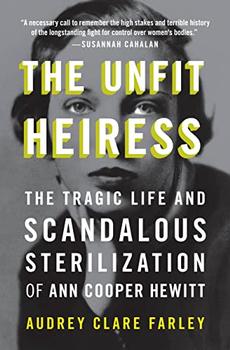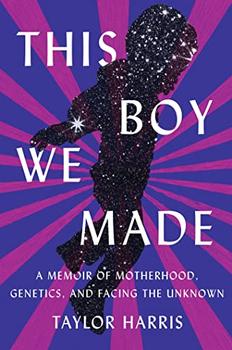Summary | Excerpt | Reading Guide | Reviews | Beyond the book | Read-Alikes | Genres & Themes | Author Bio

The darkly funny memoir of Sarah Ramey's years-long battle with a mysterious illness that doctors thought was all in her head - but wasn't. A revelation and an inspiration for millions of women whose legitimate health complaints are ignored.
In her harrowing, defiant, and unforgettable memoir, Sarah Ramey recounts the decade-long saga of how a seemingly minor illness in her senior year of college turned into a prolonged and elusive condition that destroyed her health but that doctors couldn't diagnose or treat. Worse, as they failed to cure her, they hinted that her devastating symptoms were psychological.
The Lady's Handbook for Her Mysterious Illness is a memoir with a mission: to help the millions of (mostly) women who suffer from unnamed or misunderstood conditions--autoimmune illnesses, fibromyalgia and chronic fatigue syndrome, chronic Lyme disease, chronic pain, and many more. Ramey's pursuit of a diagnosis and cure for her own mysterious illness becomes a page-turning medical mystery that reveals a new understanding of today's chronic illnesses as ecological in nature, driven by modern changes to the basic foundations of health, from the quality of our sleep, diet, and social connections to the state of our microbiomes. Her book will open eyes, change lives, and, ultimately, change medicine.
The Lady's Handbook for Her Mysterious Illness is a painfully personal memoir of illness, as well as a toolkit for readers, especially women, who have grown frustrated by repeatedly being dismissed or ignored by medical professionals. It's also a philosophical treatise arguing that for women to become heroines in their own stories, they need to be willing to travel inwards and downwards, addressing their sometimes uncomfortable histories and finding the courage to listen—both to others and to their own needs...continued
Full Review
(700 words)
This review is available to non-members for a limited time. For full access,
become a member today.
(Reviewed by Norah Piehl).
 In her memoir The Lady's Handbook for Her Mysterious Illness, Sarah Ramey mentions a litany of so-called mysterious illnesses, some of which are widely known—lupus, Lyme disease, chronic fatigue syndrome, multiple sclerosis—and others that may be less familiar to readers. I was surprised to see her mention a relatively unknown condition that happens to affect someone in my family, who was lucky enough to reach a diagnosis and an effective plan for treatment and management, but not without doing a fair amount of the kinds of research and self-advocacy about which Ramey writes. The illness is myasthenia gravis, a disease that affects approximately between 50 and 200 out of every million people.
In her memoir The Lady's Handbook for Her Mysterious Illness, Sarah Ramey mentions a litany of so-called mysterious illnesses, some of which are widely known—lupus, Lyme disease, chronic fatigue syndrome, multiple sclerosis—and others that may be less familiar to readers. I was surprised to see her mention a relatively unknown condition that happens to affect someone in my family, who was lucky enough to reach a diagnosis and an effective plan for treatment and management, but not without doing a fair amount of the kinds of research and self-advocacy about which Ramey writes. The illness is myasthenia gravis, a disease that affects approximately between 50 and 200 out of every million people.
Myasthenia gravis, or MG, ...
This "beyond the book" feature is available to non-members for a limited time. Join today for full access.

If you liked The Lady's Handbook for Her Mysterious Illness, try these:

by Audrey Farley
Published 2023
For readers of The Immortal Life of Henrietta Lacks and The Phantom of Fifth Avenue, a page-turning drama of fortunes, eugenics and women's reproductive rights framed by the sordid court battle between Ann Cooper Hewitt and her socialite mother.

by Taylor Harris
Published 2023
A Black mother bumps up against the limits of everything she thought she believed - about science and medicine, about motherhood, and about her faith - in search of the truth about her son.
Knowledge is of two kinds. We know a subject ourselves, or we know where we can find information on it.
Click Here to find out who said this, as well as discovering other famous literary quotes!